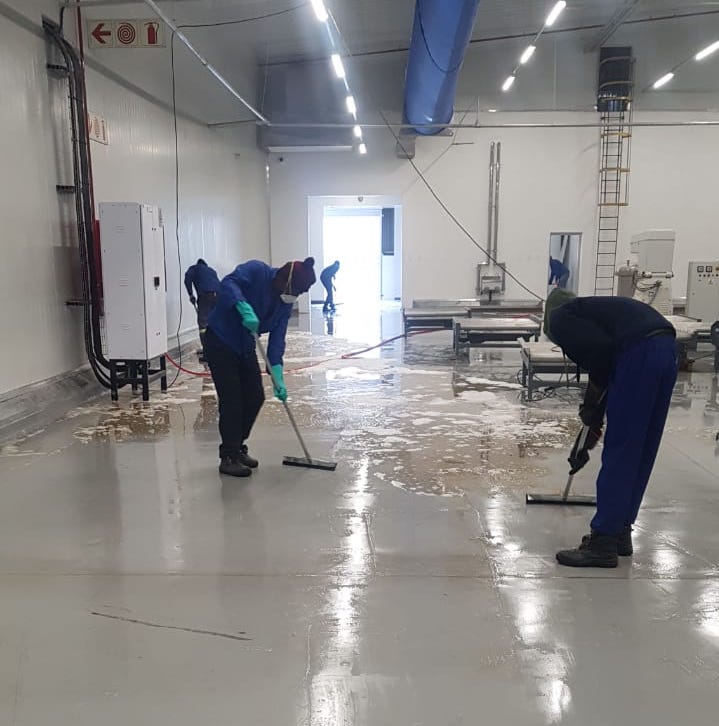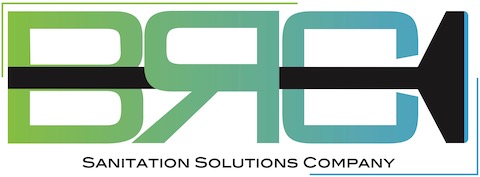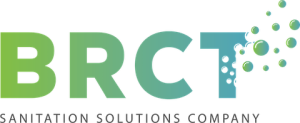As we contemplate returning to our workplaces and public spaces, social distancing is likely to be the norm. Defining the cleaning standards for the ‘new normal’ will be essential to know your premises are safe and hygienic– and how do we keep them that way and evidence that to you?
We all have a legal responsibility to do everything “reasonably practicable” to safeguard our employees and others affected by our operations. That means Defining cleaning standards for the ‘New Normal’.
• It’s likely an open office concept may need to change dramatically due to increased remote working and social distancing requirements.
• We will all need reassurance that our premises are being thoroughly cleaned and sanitised on a regular and ongoing basis.
• We will all need to feel that our public and workspaces are safe and hygienic.
• People will expect that cleaning protocols have been thoroughly reviewed and deployed in line with the new normal and to recognise the unique risks we all face.
• Cleaning “Ways of Working” will have to change; our new standard will be “need to clean”/”clean to need” rather than output specifications or standards-based specifications, with an emphasis on measuring and reporting on those things that can’t be seen are hygienically clean and safe.
To summarise, employees, customers, and other premises users need to feel safe and confident, knowing they are going into environments that are in a healthy, safe, hygienically evidenced and clean condition.
BRCT Supply Services

We have over half a century of experience delivering cleaning and support services to environments such as food manufacturing, shopping centres, restaurants, distribution, offices, pubs, sports arenas, cafes, sports clubs, leisure centres, education, and healthcare to name but a few. We’re used to environments that need to be cleaned and sanitised effectively to protect employees and customers or other premises users from acquiring preventable infections. Our “Ways of Working” or as we call them our WOW factors will be key in Defining the cleaning standards for the ‘new normal’ and along with our in-house microbiology department makes BRCT Supply Services uniquely placed to deliver a fully evidenced hygienic reactive or ongoing cleaning and disinfection service to your business.
Whether it’s a one-off ‘deep clean’ to ensure an environment is safe before reopening, ongoing cleaning and disinfection or both, we have specialist teams applying state-of-the-art infection control solutions that don’t just kill viruses and other pathogens. They offer residual protection against SARS-CoV-2 and other harmful organisms.
In terms of what we use to assure total disinfection, we use products and systems that are:
• Scientifically validated
• Give residual protection against germs on treated surfaces
• Proven to kill 99.999% of germs
• Safe in use, non-toxic, biodegradable
The Need to Change – Adopting the new normal
In defining the cleaning standards for the ‘new normal’ we all need to reassure our colleagues, customers, clients and the general public that we are doing everything possible to combat the spread of viruses. Cleaning will no longer be seen as being a routine task mainly carried out for an appearance, its profile has been raised as a result of the COVID-19 pandemic, and it is now at the very centre of all of our daily routines. Measurable hygienic cleaning will need to become the “new normal” responsibility of every business across the globe.
Many suppliers are now offering ‘deep cleans’ but are vague about what that means and how they evidence and measure the service provided.
Many cleaning companies don’t always use the most appropriate chemicals or equipment available, implement the right processes or the right “Ways of Working” or employ adequately trained and certified teams.
In the ‘new normal’ you will need to have the confidence that your cleaning suppliers have as a minimum:
- A clear understanding of what “needs to be clean” against what you can “clean to need”.
- Validated and robust cleaning processes.
- Correct chemicals and equipment.
- A certified training programme.
- A detailed reporting of works carried out Biological testing to evidence standards achieved.
- Biological testing to evidence standards performed.
The risks of not doing so are simply too significant. Questions like; are they qualified, insured to carry out the necessary work? What disinfectants will they use, and are they rated for viruses? What’s the application method? How are they validating what they do? How are they recording it? Will need to be asked before selection or engagement.
The BRCT Supply Services Difference
Devastating though this pandemic is, we wholeheartedly welcome the improvements it will force across the entire cleaning industry to change by Defining cleaning standards for the ‘New Normal’, BRCT will excel not just because we can already demonstrate the right knowledge, skills and credentials, but because we have always taken a different approach.
We always establish a precise cleaning process with every customer that satisfies each customer’s individual needs, and that ensures all surfaces will be effectively disinfected.
We build relationships. We build trust. We build partnerships with our clients – which is why we enjoy such high customer retention rates.
Right People
All of our colleagues are trained and certified in infection prevention and control and fully understand its importance. They are also trained in both the processes and in the equipment used.
We know that poorly trained staff can render a surface less safe than how they found it, which in many industries can be an expensive lesson to learn – and even more so in the ‘new normal’.
Right Processes
We use intelligent work scheduling to ensure critical surfaces are prioritised while keeping the overall process efficient using a ‘Need to Clean’ vs ‘Clean to Need’ metric. This allows us to continue to stay competitive while ensuring that our customers, their colleagues and the general public remain safe.
For example, they are cleaning a floor once a day may not be as critical in the ‘new normal’ as cleaning door handles and touchpoints throughout your premises. So, handles or touchpoints would be “Need to Clean”, and a floor would be “Clean to Need”.
We also continually reinvest in the most innovative technology available which will be used in defining the cleaning standards for the ‘new normal’ We are constantly looking for and trialling and helping to develop (through our trusted partners) new equipment and cleaning methods – which we then only offer to our customers after an exhaustive validation of both the science behind them and the customer benefits they bring: no gimmicks, no magic, no smoke or mirrors.
Right Products
Defining cleaning standards for the ‘New Normal’ will mean all of the chemicals we use are independently tested to ensure they conform to the highest standards and that they inactivate greater than 99.99% of bacteria and viruses. We also ensure they are manufactured from entirely biodegradable raw materials from sustainable sources.
We are also actively eliminating traditional, harsh cleaning chemicals from our supply chain and replacing them with cutting-edge biologics, dramatically reducing our combined carbon footprints.
For example, using a biological product on a ‘Clean to Need’ floor gives better results than traditional, harsh chemicals and frees up time to concentrate on keeping high-touch points and critical surfaces safe.
COVID-19 and Your Business
Many experts are predicting this virus is likely to be with us for years, not months, and the likely ‘new normal’ may involve society and industry repeatedly going in and out of lockdowns at a national, regional, or even a community level to manage surges in infection rates.
We believe managing this, and the uncertainty it creates provides more than enough headaches for businesses. We want to take the stress of maintaining cleaning and hygiene away so you can concentrate on running your business and looking after your people in these incredibly challenging times.
We offer many solutions to many industries but want to keep it simple
For many customers, we are already an integral part of their COVID-19 business protection strategy across Johannesburg. Our systems give staff increased peace-of-mind after a suspected or confirmed case of the illness as well as knowing their working environment is protected.
Frequently Asked Questions
How long does residual protection last?
How long is a piece of string! The golden rule is ‘you can’t disinfect dirt’ so any residual protection that kills germs landing on a surface only lasts as long as the surface remains visibly clean.
Dirt gives microorganisms a place to hide and is also food for bacteria. For this reason, why most professional cleaning processes in critical environments rely on a cleaning step followed by a disinfection step, indeed that is a legal requirement for food contact surfaces.
Any residual protection offered by the raw materials used in hygiene chemicals can only last until the surface becomes dirty again.
We see many companies making residuality claims of up to 30 days for biocidal products and cannot see how such claims can be justified unless they have rewritten the established laws of chemistry and biology.
If a client wishes to use one of these ‘miracle’ products, we will happily have our technical team give a thorough, written evaluation of the product and the claims made.
Which surfaces are ‘Need to Clean’?
Frequent touchpoints such as handles, switches and taps and especially areas with high footfall: kitchens, offices, in warehouses (pack benches, toilets, canteens etc.,) are all critical surfaces, and while we don’t ignore anything that needs cleaning, we pay particular attention to these.
What chemicals do you use?
Defining the cleaning standards for the ‘new normal’ we use synergistic blends of cationic biocides that kill viruses, bacteria and other germs instantly on contact by destroying their cell membranes as well as disrupting other cellular activity required for life. These are complemented by biodegradable surfactants derived from sustainable sources such as coconut oil or fermentation by-products.
They offer residual protection against bacteria, viruses, yeasts and spores. They then bind to the cleaned surface at a molecular level to give residual protection against harmful microbes.
The biocides we use are completely safe but devastating to microbes, remaining on surfaces even after wiping to give residual protection for as long as the surfaces remain visibly clean.
When the electrostatic spraying and disinfectant process is applied to clean surfaces or objects that need protection, it will instantly kill 99.999% of germs and then give residual protection against pathogenic and spoilage microorganisms.
Do the chemicals you use kill SARS-CoV-2?
First, we should point out that technically viruses are non-living (or we get long emails from our lead microbiologist).
They’re trouble wrapped in protein and the case of SARS-CoV-2 a bag of fat as well.
Technical distinctions aside, the chemicals we use, tear the virus to pieces and – to use the proper term – render it ineffective on contact. Just because it can cause serious illness when it infects people and (as yet) there’s no vaccine or specific treatment doesn’t mean it’s tough to kill on a surface. The products we use make short work of it.
People often confuse how easy something is to treat or kill INSIDE the body with how easy it is to kill OUTSIDE the body. They are not connected.
Which standards are products tested to?
SARS-CoV-2 is rendered ineffective by detergents. Its fatty coat makes it susceptible to pure soap and water. But we like to make sure.
We use products certified to at least BS EN 1276 or BS EN 14476.
EN 14476 shows effectiveness against Poliovirus Type 1, Adenovirus Type 5 and Murine Norovirus. The test mandates these viruses because they are notoriously tough to kill. Because of their structure coronaviruses are far, far easier to kill so EN14476 sets the bar way above that needed for SARS-CoV-2.
EN 1276 is a bactericidal standard (showing the product is effective against bacteria). This is one of the required EN Standards for sanitisers/disinfectants used on food contact surfaces so far more cleaning products have been tested to this standard than EN 14476. Despite 1276 being technically not relevant (because it’s a test of efficacy against bacteria, not viruses), any product that passes this standard will be effective against coronaviruses.
Our preferred products all have multiple independent certifications assuring their biocidal credentials against various organisms. Many are also tested to EN14476:2013 + A2:2019 guaranteeing their effectiveness against all coronaviruses including SARS-CoV-2, the causative agent of COVID-19.
Are your chemicals environmentally responsible?
All the biocides we use are entirely safe, non-tainting, wholly biodegradable and comply with local rules and regulations and are tested to many international standards.
We discuss product choice with each client, but our preferred options use natural and safe raw materials derived from plant and/or biological sources. We try to avoid toxic products from chemical plants to keep our carbon footprint low.
We also minimise packaging waste by using super-concentrated diluted on site.
Do you use steam cleaning?
Steam can be quite useful for dislodging ingrained dirt and can be effective at killing microorganisms. Indeed this is how hospital autoclaves sterilise equipment and other materials.
But autoclaves are built to work at exact temperatures and pressures to ensure infectious agents are killed or otherwise rendered ineffective. They use saturated steam at 121°C and at least 15psi of pressure for 15-30 minutes. Anything less than this is not guaranteed to be effective.
We have seen companies wafting a steam wand at low pressure with no temperature control over a surface and claiming this is an effective form of disinfection. It isn’t.
Steam disinfection (as opposed to steam cleaning) is an exact science, and the disinfection is being achieved through a combination of high temperature and pressure, the medium for which is superheated, saturated steam. It’s not a case of “any old steam will do”.
For more information, please contact us on Defining the cleaning standards for the ‘new normal’.

Recent Posts
Could the standard of cleaning you are receiving be improved?
If you are not happy with your current cleaning contractor's service, don't just put up with it. Get yourself a company who will go the extra mile! Contact us now to help bring the standard of...
COVID-SECURE Disinfection cleaning & fogging services - Johannesburg. Fogging is a quick way to disinfect large areas and allow them to be returned to everyday use. We use a fogger machine...

